Hyundai Kona Electric gets sub-£25,000 price
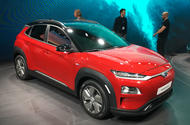 Hyundai’s second EV is a Nissan Juke rival, with only 8lb ft less torque than the 997 Porsche 911 GT3 and up to 292 miles of range from a single charge
Hyundai’s second EV is a Nissan Juke rival, with only 8lb ft less torque than the 997 Porsche 911 GT3 and up to 292 miles of range from a single charge
Hyundai’s second EV, the Kona Electric, gets a 292-mile WLTP range from a single charge in its highest, 64kWh specification. Prices start at £24,995 for the lesser 39kWh version, including the Government's £4500 plug-in car grant.
The small SUV, the first EV in the segment, has two battery options, with the lesser option providing 186 miles of range from a 39.2kWh battery pack. Both variants have 104mph top speeds and 291 lb ft of torque – the same as the Alfa Romeo Giulia Veloce. It'll be revealed in the metal at this year's Geneva motor show.
The 64kWh car costs £26,370 - a £1375 premium over the 39kWh car, and £920 down on the Nissan Leaf - its closest rival.
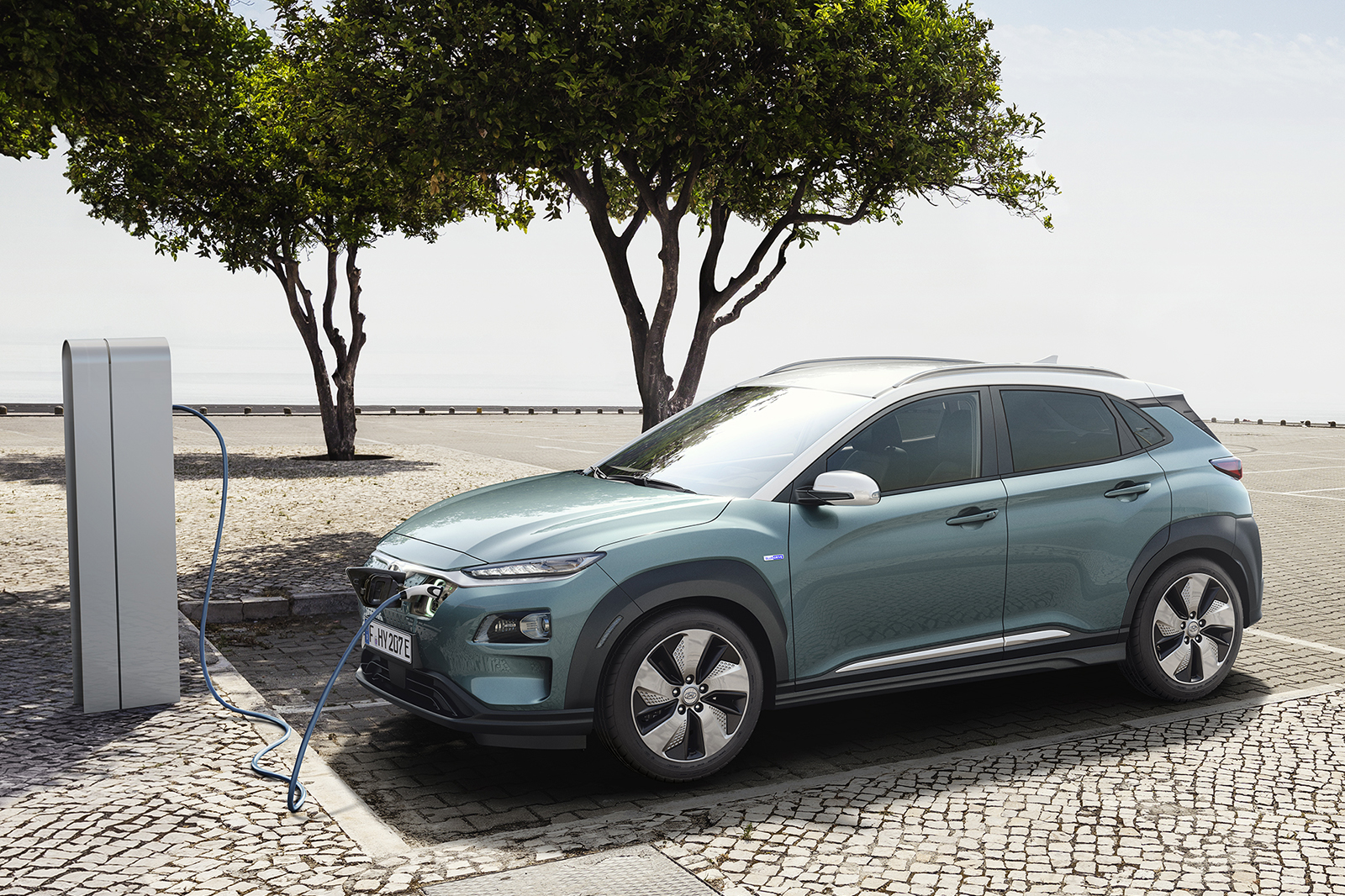
The shorter-range version, which has a 131bhp motor sprints to 62mph in 9.3sec, while the longer-range, 198bhp variant takes 7.6sec, or the same as the Toyota GT86. Efficiency for both engines is as yet unconfirmed, but Hyundai is targeting 15.2kWh per 62 miles under the new WLTP testing regime. The charger port is located next to the Hyundai badge at the front of the car.
Hyundai claims that the car’s battery pack is integrated into the Kona’s platform without encroaching upon interior space, meaning that the regular Kona’s luggage space is unchanged. Without the charge cable, the Kona Electric provides 373 litres, falling to 332 with the cable stowed. There’s additional storage space in the front of the car.
The Kona Electric’s lithium ion battery pack can be charged in as little as 54min to 80% capacity from a 100kW fast charger in long-range form, or 9hr 40min from a standard AC source. The same fast-charge time applies to the short range car, but the standard AC charge time falls to 6hr 10min.
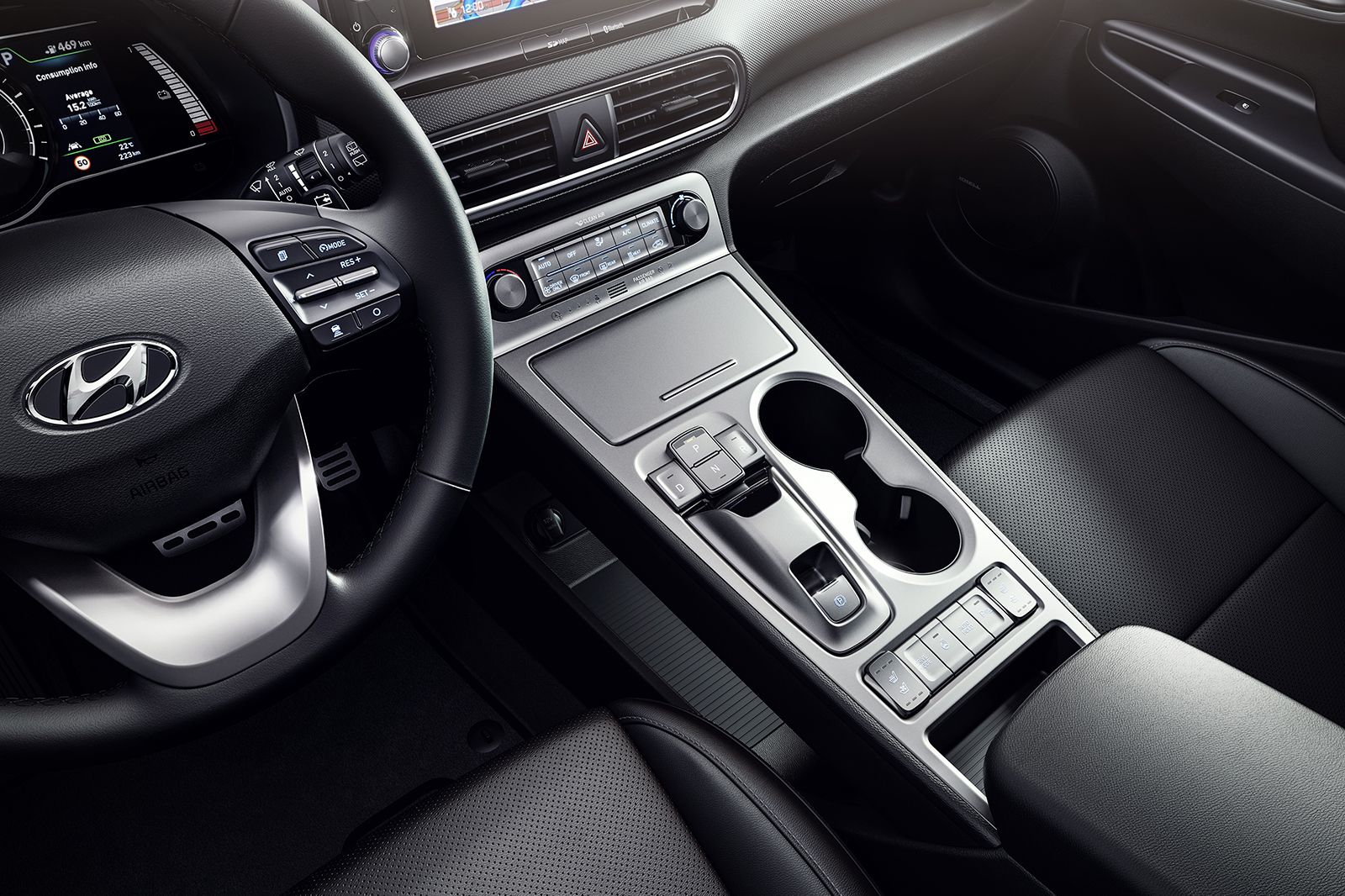
On the outside, it’s similarly styled to the regular Kona, but has a closed grille and no exhausts, while the 17in alloys are exclusive to the electric Kona. The bumpers and spoiler are tweaked for aerodynamics.
Inside, there’s a digital dashboard, head-up display and 7.0in infotainment touchscreen, with the option of an upgraded 8.0in unit, which brings uprated navigation and a data subscription for one year. The front seats are heated and ventilated, as well as eight-way electrically adjustable, with two-way lumbar support adjustment for the driver. A heated steering wheel is optional.
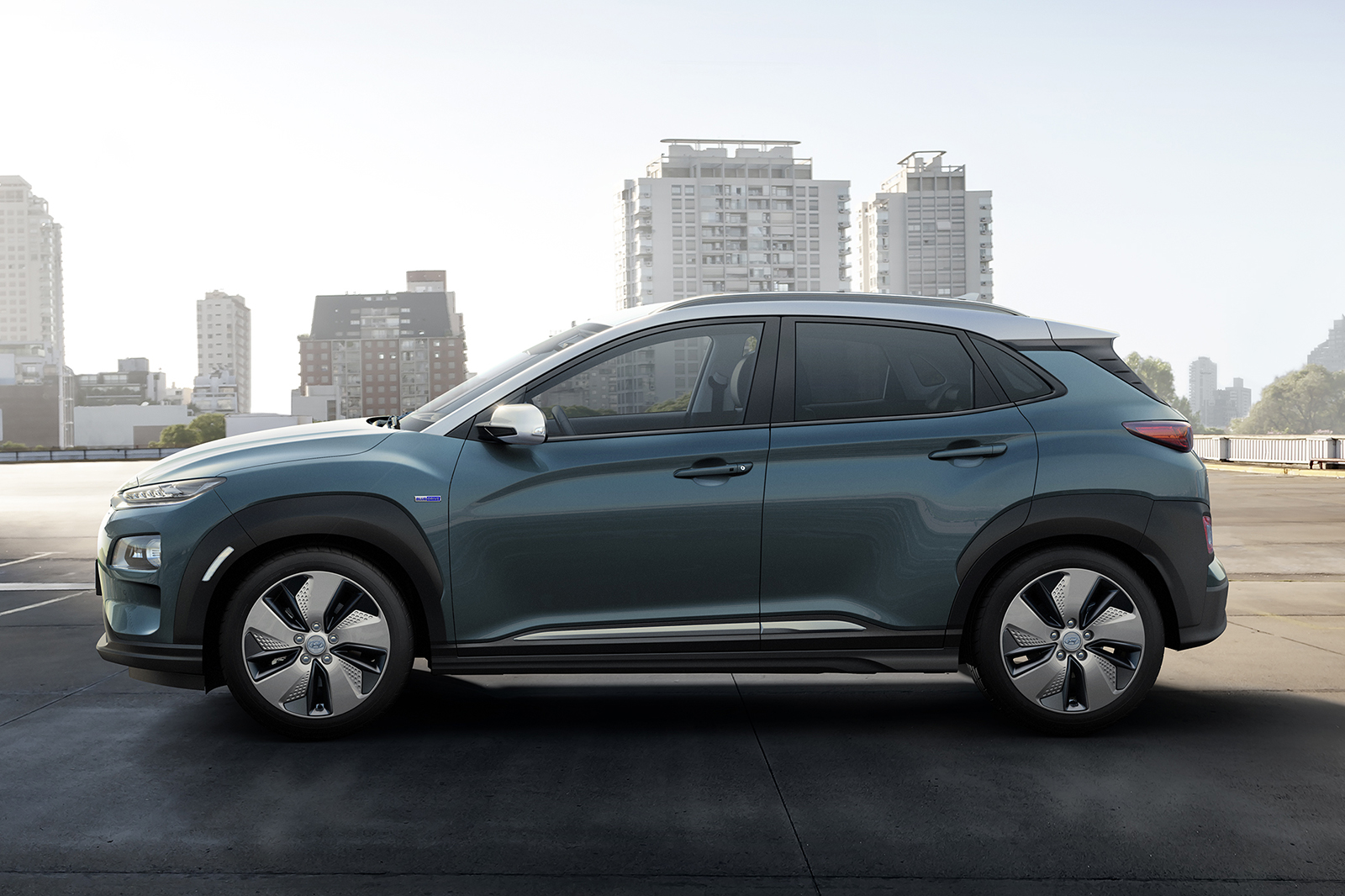
The Kona Electric is something of a tech flagship of the small SUV’s lineup, with numerous driver assistance systems, including adaptive cruise control, a lane centring system, rear cross-traffic alert and automatic emergency braking. A five-star Euro NCAP crash safety rating is targeted.
Hyundai is a while off revealing the prices of the Kona Electric given that it won’t arrive in the UK until at least December, but it’s likely to carry quite a premium over the regular Kona.
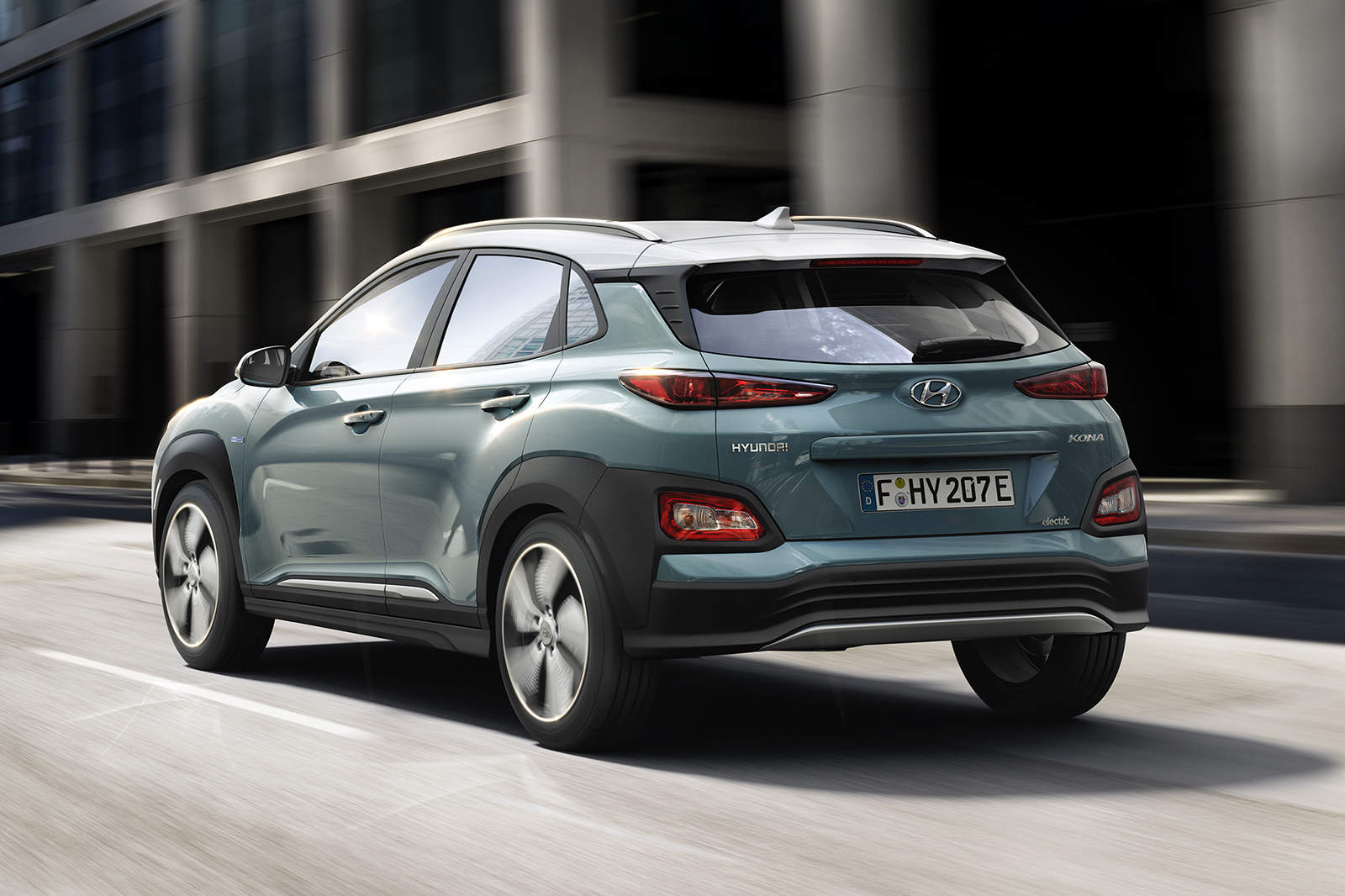
To be competitive with the Nissan Leaf, the Kona Electric carries a premium of aroun £10,000 over the entry-level Kona, but only £1000 above the current range-topper, the 1.6T GDi Blue Drive Premium GT, equipped with four-wheel drive and an automatic gearbox. Hyundai’s first EV, the Ioniq Electric, makes up around 5% of the model’s sales, although with a longer range even in its short-range specification, is likely to sell quicker than the divisively styled Ioniq.
Hyundai plans 16 electrified cars in its lineup by 2025. The Kona Electric, recently revealed Nexo, which replaces the ix35 Fuel Cell in Hyundai’s hydrogen fuel cell efforts, and the Niro EV, due in autumn, make up three crucial prongs in the assault, as Hyundai aims to take the lead on low and zero-emissions driving.
Read more
2018 Geneva motor show preview
UK's first 150kW EV rapid chargers to be installed this year
Comments
Post a Comment